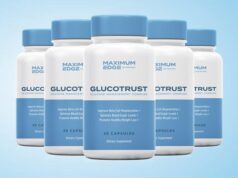Bacteria are microorganisms that are found in our body as well as in our surroundings, and have their own roles. There is a common misconception that bacteria are harmful and only cause a negative impact on our health. But you may not know the other side of the story.
Types of Bacteria
There are basically two types of bacteria, good and bad. Bad bacteria are obviously harmful, makes you ill, contaminate food and water, and breed when your environment is unhygienic, and polluted. Since they multiply at an alarming rate, it is important to keep your surroundings clean, and place basic hygiene above anything else.
Good bacteria, on the other hand, bear a paramount importance in our lives and play a pivotal role in maintaining a healthy life. They aid in smooth digestion and are also found in dairy products like yogurt, skin creams, and dietary supplements. Good bacteria in our gut is also called probiotics enabling the body to function properly, by fighting against microbes that make us sick and cause various diseases. It produces vitamins that further enhances it capability to keep the gut sound and healthy.
We will now talk about probiotics in much greater detail below.
What are Probiotics?
Probiotics or good bacteria are naturally found in our bodies and are defined as live bacteria or yeasts that keep our intestines and gut healthy and provide us a with a sound digestive system. When a body loses good bacteria in case of catching any disease or illness that requires consumption of antibiotics, the probiotics come to the rescue and help in replacing them. They further help in keeping the bad bacteria at bay, balance the good and bad bacteria in the gut, and allow the body to reap maximum benefits from the absorbed nutrients in terms of a stronger immune system, healthy digestive system, and better overall health.
The Benefits of Probiotics
Probiotics have a pivotal role in a sound functioning of a human body. A number of scientific studies and research concluded that probiotics are effective in treating Irritable Bowel Syndrome, infections, inflammatory bowel disease (IBD), Diarrhea, skin issues like eczema, allergic rhinitis (hay fever), cold, flu, tooth decay, throat infections, periodontal disease, urinal and vaginal infections, body weight, and a number of other health issues.
Types of Probiotics
There are an innumerable amount of probiotics strains found today, and the human body is believed to have more than 500 of these probiotic strains that serve their own unique purpose promoting a healthy gut, smooth digestion, and weight loss. Some of the most common probiotic strains are discussed below. Make sure you are well-versed in these and aim to include them into your diet so as to reap valuable health benefits.
- Bifidobacterium Bifidum — It is found in abundance in large intestine and is responsible for enhancing the production of vitamins, fighting off bad bacteria thereby strengthening the immune system supports immune system.
- Bifidobacterium Longum — It is known for its stellar properties that promotes a healthy liver, controls cholesterol and inflammation, and helps in decomposing decay matter.
- Bifidobacterium Breve — A number of studies have shown that Bifidobacterium Breve supports a healthy gut and keep the bad bacteria at bay.
- Bifidobacterium Infantis — This probiotic strain plays an important role during infancy and is passed from the mother to the baby. It promotes a healthy digestive system, and is widely used for providing relief from Irritable Bowel Syndrome, constipation, and diarrhea.
- Bifidobacterium Lactis — It is widely used for enhancing immunity level, absorbing the nutrients, improving digestion, and hindering potential tumor growth.
- Lactobacillus Casei — It helps in fighting off infections, allergies, and supports a strong immune system.
- Lactobacillus Acidophilus —It stabilizes the cholesterol level, improves digestion, and alleviates from bloating, constipations, and gas.
- Lactobacillus Bulgaricus — This probiotic strain fights off harmful bacteria that pose a serious threat to the optimal working of a digestive system and can produce its own antibiotics.
- Lactobacillus Brevis —It is capable of enhancing cellular immunity, promotes T-killer cells and reduces h. pylori bacteria.
- Lactobacillus Rhamnosus — It maintains an equilibrium by balancing out both good and bad bacteria, promoting healthy skin, and protecting from respiratory and throat infections.
Other beneficial probiotic strains include, Bacillus Subtilis, Bacillus Coagulans, Saccharomyces Boulardii, Lactobacillus Helveticus, Lactobacillus Plantarum, and Lactobacillus Reuteri.
Food Sources of Probiotics
It is very much clear now that probiotics play a significant role in maintaining a sound gut health and optimal functioning of a human body. In recent years, there has been a considerable rise in the consumption of natural foods, supplements, and diets that are rich in probiotics and can strengthen the body through its wide range of benefits. Some of the common foods that are profoundly rich in beneficial probiotic strains are,
- Kefir
Kefir is a fermented dairy product consisting of fermented milk and kefir grains, that is very much similar to yogurt, and has its roots in Russia and Turkey. It is rich in unique probiotic strains due to fermentation with yeast and bacteria and is a creamy, tangy drink that is easy to consume.
- Plain Yogurt
Yogurt has always been on the forefront when it comes to natural probiotic options as it is rich in good bacteria and promotes a healthy gut. It is also used to maintain a smooth digestive system, beat bloating, and gas. The users should make sure that the yogurt they are buying is organic so as to maximize the benefits.
- Tempeh
Tempeh has recently gained a lot of popularity among the masses due to its high probiotic properties and serving as an exceptional meat supplement. It is of Indonesian origin and is formulated by fermented soybeans. It has a tendency to fight off bad bacteria and serve as a natural antibiotic neutralizing the toxins in the body.
Other foods that are rich in probiotic strains include, Sourdough Bread, Coconut Kefir, Sour Pickles, Kvass, Sauerkraut, Miso, Kimchi, and Raw Cheese.
It is important to consume a diet with a variety of well-balanced probiotic strains to effectively reap its benefits.
Probiotic Supplements
Sometimes a diet doesn’t provide the required probiotic strains and so people couple it with essential probiotic supplements that are just as effective. However, an individual must keep certain things in mind when he decides to buy a probiotic supplement.
- High CFU count
When purchasing a probiotic supplement, it is important to take into account the CFU (Colony Forming Units) on the supplement label as it shows its ability to create additional good bacteria, and go for the one that has 10 to 30 billion CFUs ideally required for daily supplementation.
- Strain Diversity
Make sure the probiotic supplement you are buying has a diversified supply of strains so that the body can function at its finest. An ideal probiotic supplement will have 10-30 different probiotic strains.
- Live Bacteria
A genuine probiotic supplement will require refrigeration and even if doesn’t it should otherwise properly state that the bacteria is live and will survive even without refrigeration. It is essential to opt for strains like Bacillus Coagulans, Saccharomyces Boulardii, Lactobaccilus Plantarum, Lactobaccilus Brevis, Lactobaccilus Acidophilus, Lactobacillus Rhamnosus, Bifidobacterium Lactis and Bifidobacterium Longum, as they promote a healthy gut.
- Other Features
It is important to do your research on the supplement brand and its overall image in the market. The probiotics should be enclosed in a capsule or must be enteric coated so that the CFU’s can better serve their roles.
The Popularity of Probiotics
In recent years, it has been reported that the consumption of probiotic supplements has significantly increased. It is because of the fact that more and more people have become enlightened about its importance, benefits, and its irreplaceable role in the well-being of our bodies. In addition, scientific advancement has allowed pharmaceutical companies to introduce these beneficial probiotic strains into their supplements and alleviate the digestive, gastrointestinal, and immunity issues an individual normally faces during his lifetime.
Concluding Remarks
To sum up, it can be safely concluded that probiotics play a pivotal in maintaining a sound health. Even though it is still yet to be proved that probiotics can be an effective solution to certain diseases, it is a no brainer that when a gut is healthy, and is functioning optimally, it ultimately impacts the overall health of an individual. Make sure you have a discussion with your physician before deciding to consume a probiotic supplement as he will best guide you what brand to go for and what probiotic strains your body needs.








